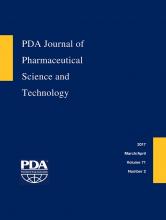Abstract
The unpredictability of actual physical, chemical, and biological experiments due to the multitude of environmental and procedural factors is well documented. What is systematically overlooked, however, is that computational biology algorithms are also affected by multiplicity of parameters and have no lesser volatility. The complexities of computation protocols and interpretation of outcomes is only a part of the challenge: There are also virtually no standardized and industry-accepted metadata schemas for reporting the computational objects that record the parameters used for computations together with the results of computations. Thus, it is often impossible to reproduce the results of a previously performed computation due to missing information on parameters, versions, arguments, conditions, and procedures of application launch. In this article we describe the concept of biocompute objects developed specifically to satisfy regulatory research needs for evaluation, validation, and verification of bioinformatics pipelines. We envision generalized versions of biocompute objects called biocompute templates that support a single class of analyses but can be adapted to meet unique needs. To make these templates widely usable, we outline a simple but powerful cross-platform implementation. We also discuss the reasoning and potential usability for such concept within the larger scientific community through the creation of a biocompute object database initially consisting of records relevant to the U.S. Food and Drug Administration. A biocompute object database record will be similar to a GenBank record in form; the difference being that instead of describing a sequence, the biocompute record will include information related to parameters, dependencies, usage, and other information related to specific computational instance. This mechanism will extend similar efforts and also serve as a collaborative ground to ensure interoperability between different platforms, industries, scientists, regulators, and other stakeholders interested in biocomputing.
- © PDA, Inc. 2017
PDA members receive access to all articles published in the current year and previous volume year. Institutional subscribers received access to all content. Log in below to receive access to this article if you are either of these.
If you are neither or you are a PDA member trying to access an article outside of your membership license, then you must purchase access to this article (below). If you do not have a username or password for JPST, you will be required to create an account prior to purchasing.
Full issue PDFs are for PDA members only.
Note to pda.org users
The PDA and PDA bookstore websites (www.pda.org and www.pda.org/bookstore) are separate websites from the PDA JPST website. When you first join PDA, your initial UserID and Password are sent to HighWirePress to create your PDA JPST account. Subsequent UserrID and Password changes required at the PDA websites will not pass on to PDA JPST and vice versa. If you forget your PDA JPST UserID and/or Password, you can request help to retrieve UserID and reset Password below.






